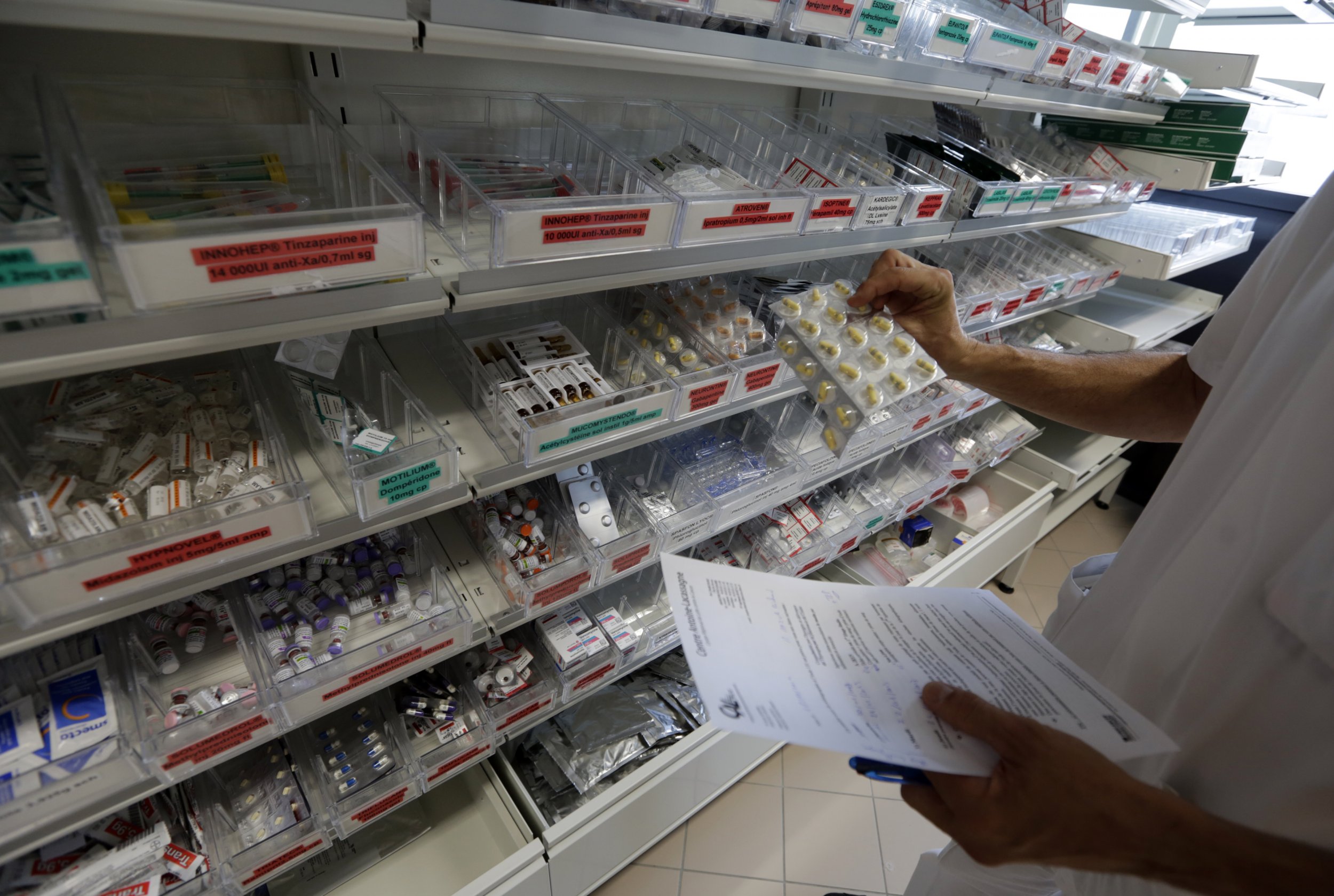
Many drugs approved in Europe to treat cancer show no conclusive evidence that they extend people's lives or give them a higher quality of life, according to new research.
Researchers from King's College London and the London School of Economics published their findings in the BMJ on Wednesday. The paper is just the latest to find that many cancer drugs did not show the benefits that regulators believed existed when they first approved them.
After five years on the market, only 11 out of the 68 approved drugs showed "clinically meaningful benefit," as determined on a scale used by the European Society of Medical Oncology.
In the United States, "it's virtually the same numbers," said Dr. Vinay Prasad in an editorial that accompanied the paper. Prasad is a blood cancer specialist and noted commentator on health policy and the evidence around medicine affiliated with the Oregon Health and Sciences University.
Why does this happen? Prasad noted that the patient populations in clinical trials might contribute to the issue; they tend to be younger and healthier patients than others with the same condition. But in an editorial that accompanied the paper, he also pointed to the use of "surrogate endpoints."
Rather than follow patients to see if they live longer, researchers look for other indications that the drug is working. These endpoints can include the results of blood tests or the length of time people survive without their cancer spreading or relapsing. There can be good reasons for surrogate endpoints to be used. In some cases, people can live for years with a disease, so it would take a long time to determine if a drug helps people survive longer. Without using a surrogate endpoint, drug companies would have to wait for that data, and patients outside of those trials wouldn't be able to get a potentially useful drug.
If a company uses surrogate endpoints that haven't already been proven to be a good substitute when they apply to get a drug approved, then they are supposed to do more studies after the drug has come onto the market. "For some indications, you can get some of these information later. You don't want to delay it," Vinay tells Newsweek.
But often, that follow-up never happens or the promised benefits never show up. "What these papers are showing is that for maybe almost as much as half of the drugs out there, we never get this information," says Vinay. "And I just can't understand anybody's worldview where they think that's acceptable."
Most of the cancer drugs included in this new study used surrogate endpoints. However, these aren't just used for cancer drugs. "This type of lack of confirmation is common," said Dr. Joseph Ross, a physician and researcher at Yale University who focuses on evidence behind medical treatments and devices. "But particularly for patients with cancer, there's this feeling that 'I have to try anything.'"
Prasad and Ross have both done studies and found that a majority of new drugs approved in the U.S. to treat cancer and other diseases between 2005 and 2012 were also prescribed to patients based on surrogate endpoints. Just as the European researchers found, even after a few years a majority of the cancer drugs approved based on surrogate endpoints didn't have any evidence to show that they help patients live longer.
"You often hear, when you go to these regulatory meetings, people keep saying 'we need more options.' I like to say, we need good options," Prasad said. "You don't want options. You want good options. You want drugs that have proven benefits."
Uncommon Knowledge
Newsweek is committed to challenging conventional wisdom and finding connections in the search for common ground.
Newsweek is committed to challenging conventional wisdom and finding connections in the search for common ground.
About the writer
Kate Sheridan is a science writer. She's previously written for STAT, Hakai Magazine, the Montreal Gazette, and other digital and ... Read more





